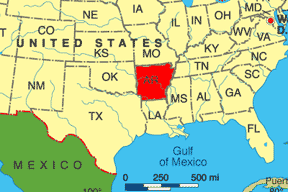Check out this exchange between Senator Specter and Attorney General Gonzales about habeas corpus (unofficial transcription):
Specter: Now wait a minute, wait a minute. The Constitution says you can’t take it away except in the case of invasion or rebellion. Doesn’t that mean you have the right of habeas corpus?
Gonzales: I meant by that comment that the Constitution doesn’t say that every individual in the United States or every citizen has or is assured the right of habeas corpus. It doesn’t say that. It simply says that the right of habeas corpus shall not be suspended.
Yep. This is the highest legal officer in the country. No wonder he’s so opposed to the judiciary and their meddlesome “interpretations” of the Constitution that threaten the rights of the executive branch.
And, of course, he’s right. He’s just looking at the literal meaning of the words. It all makes sense now, and I can start reading the Constitution as the Bush administration would like me to. Let’s consider some other provisions…
- The Constitution doesn’t say that people have the right of freedom of speech. It simply says that Congress shall pass no law abridging it.
- The Constitution doesn’t say that people have the right to be secure from unreasonable searches. It simply says that it shall not be violated. If people don’t have it, it can’t be violated.
- The Constitution doesn’t say that people have the right to a speedy trial. It simply says that they shall enjoy the right to a speedy trial.
- The Constitution doesn’t say that the President is limited to two terms. It simply says that no person shall be elected to the office of the President more than twice.
OK, I’m kidding, but… how is that different from the constant destruction of the Constitution we’ve seen, most specifically in the past 4 years? (And for those of us following the drug war, we’re particularly sensitive to it since we’ve been dealing with the encroachment much longer.)
Even beyond the faults of past administrations, this group in power seems to see individual rights as some kind of minor annoying obstacle to the function of government, as opposed to seeing the protection of individual rights as the primary purpose of government.
We hold these truths to be self-evident, that all men are created equal, that they are endowed by their Creator with certain unalienable Rights, that among these are Life, Liberty and the pursuit of Happiness. Ö That to secure these rights, Governments are instituted among Men, deriving their just powers from the consent of the governed.
Now I want to make is clear that I am not against the Bush administration because they’re “conservative” or because they’re “Republican.” My strong opposition to the Bush administration stems from the fact that they are enemies of the Constitution. As a drug policy reformer, I have allies who are liberals, conservatives, Democrats, Republicans, libertarians, Libertarians, moderates, and every other form of political creature, with the exception of blatant authoritarians. And it’s way past time for all good conservatives and Republicans to disavow the authoritarians with everything they’ve got.
Unfortunately, this administration has encouraged every authoritarian nutcase to come out of the woodwork.
The same kind of people who react to an outrageous 55 year sentence for marijuana sales with statements like “I’ve got no sympathy for someone who breaks the law,” will defend every form of lawbreaking imaginable from the government or its agents. Not only will they defend wiretapping and illegal search and seizure, these morons demand a Presidential pardon for two U.S. border agents who shot 15 times in broad daylight at an unarmed drug suspect who posed no threat and was running away (Note: the suspect first tried to surrender, but one of the agents tried to hit him with the butt of his shotgun, so the suspect ran.)
Nutcase Alan Burkhart writes:
While [border agents] Ramos and Compean did engage in activities that undermined their credibility – they disposed of spent shell casings after the incident – our justice system is failing to look at the larger picture. Our country is being poisoned by illegal drugs coursing across the southern border. The Mexican drug cartels have hired corrupt members of the Mexican military to protect their drug runners on US soil. There have been multiple armed confrontations between Border Patrol officers and these hired mercenaries. Our Border Patrol officers are outgunned, and on occasion outnumbered, in these incidents.
Why is it difficult to simply do the right thing? Why were Ramos and Compean brought up on charges instead of being congratulated for a job well done?
Why? Because they broke the law and betrayed their trust as employees of the American people and defenders of the Constitution. Because they violated the rights of another human being. And that is worse than any drug law violation you can imagine or invent.
Update: Alan Burkhart responds in comments
Update: Crooks and Liars has the video of Gonzales and his horrific literal reading of the Constitution. Prior to the statement above, he says:
There is no express grant of habeus in the Constitution; there’s a prohibition against taking it away


